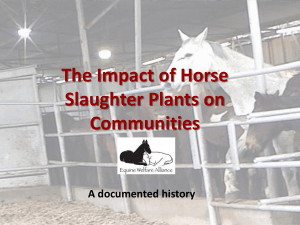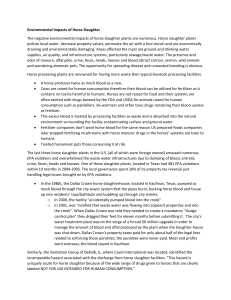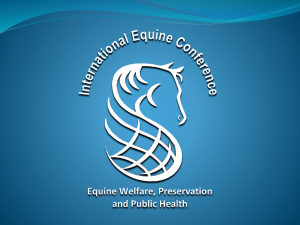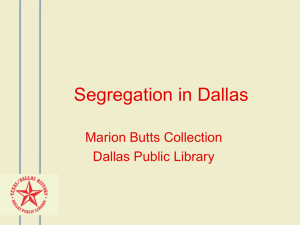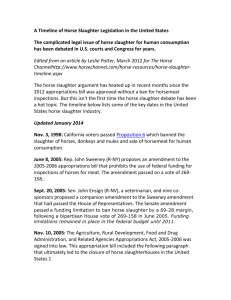Socioeconomic Impacts of Horse Slaughter
advertisement
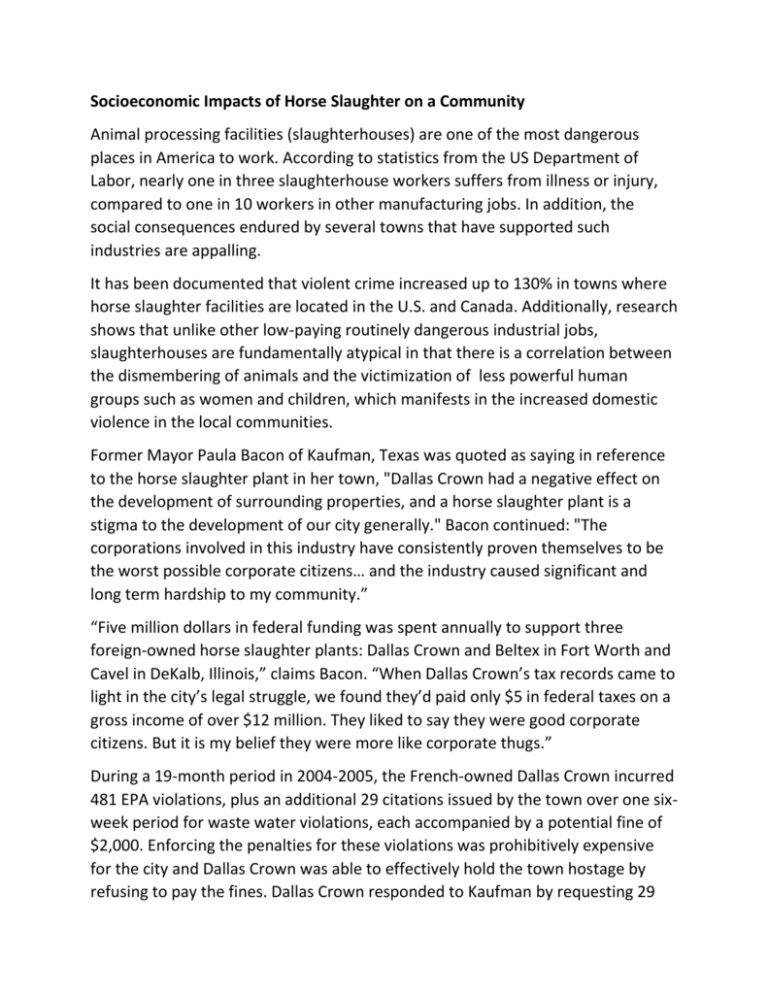
Socioeconomic Impacts of Horse Slaughter on a Community Animal processing facilities (slaughterhouses) are one of the most dangerous places in America to work. According to statistics from the US Department of Labor, nearly one in three slaughterhouse workers suffers from illness or injury, compared to one in 10 workers in other manufacturing jobs. In addition, the social consequences endured by several towns that have supported such industries are appalling. It has been documented that violent crime increased up to 130% in towns where horse slaughter facilities are located in the U.S. and Canada. Additionally, research shows that unlike other low-paying routinely dangerous industrial jobs, slaughterhouses are fundamentally atypical in that there is a correlation between the dismembering of animals and the victimization of less powerful human groups such as women and children, which manifests in the increased domestic violence in the local communities. Former Mayor Paula Bacon of Kaufman, Texas was quoted as saying in reference to the horse slaughter plant in her town, "Dallas Crown had a negative effect on the development of surrounding properties, and a horse slaughter plant is a stigma to the development of our city generally." Bacon continued: "The corporations involved in this industry have consistently proven themselves to be the worst possible corporate citizens… and the industry caused significant and long term hardship to my community.” “Five million dollars in federal funding was spent annually to support three foreign-owned horse slaughter plants: Dallas Crown and Beltex in Fort Worth and Cavel in DeKalb, Illinois,” claims Bacon. “When Dallas Crown’s tax records came to light in the city’s legal struggle, we found they’d paid only $5 in federal taxes on a gross income of over $12 million. They liked to say they were good corporate citizens. But it is my belief they were more like corporate thugs.” During a 19-month period in 2004-2005, the French-owned Dallas Crown incurred 481 EPA violations, plus an additional 29 citations issued by the town over one sixweek period for waste water violations, each accompanied by a potential fine of $2,000. Enforcing the penalties for these violations was prohibitively expensive for the city and Dallas Crown was able to effectively hold the town hostage by refusing to pay the fines. Dallas Crown responded to Kaufman by requesting 29 separate jury trials, potentially causing yet another economic strain on the city’s budget. Furthermore, Dallas Crown refused Kaufman engineers entry into the plant, preventing environmental testing for nine months. “During that time, legal expenses consumed 20% of the town’s property tax revenue. That floored me,” said Bacon, describing the day she pulled the city manager’s records and tallied up the bills. Housing a horse slaughter plant not only has the proven potential to inhibit economic development but also lowers real estate value of its surrounding properties as the community is stigmatized as a region that enables the killing of horses for profit.
